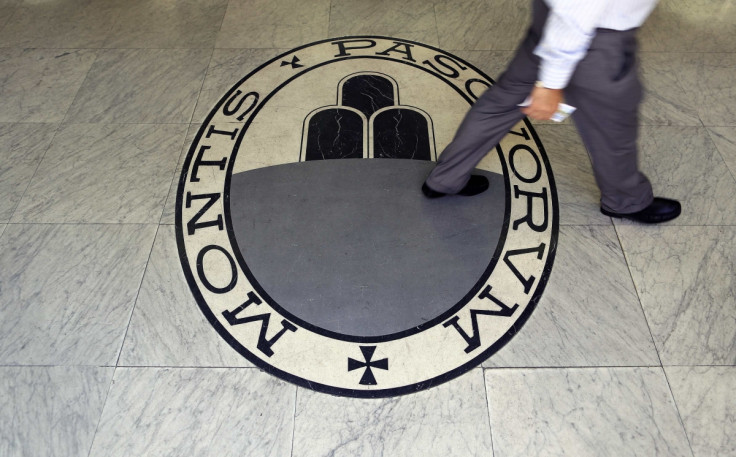Italian banks breathe sigh of relief as government works on €20bn bailout plan
Italian government will ask parliament to authorise a €20bn rescue package but MPS hopes to avoid nationalisation.

Shares in Italian banks breathed a sight of relief on Tuesday (20 December), after reports the Italian government was working on a €20bn package aimed at rescuing the country's most fragile banks, including Banca Monte dei Paschi di Siena (MPS).
The world's oldest-surviving lender was up 3% shortly after the opening bell, recouping part of the losses following the previous session's 9% slump, while shares in Banco Popolare di Milano was up 2.6% and UniCredit and UBI Banca gained 1.6% and 1.5% respectively.
Banks in the Eurozone's third-largest economy were given a much-needed boost on Monday night, when the government confirmed Prime Minister Paolo Gentiloni had asked the parliament to authorise the €20bn rescue package.
"[It] could be necessary to adopt measures with the aim of protecting savers if there were risks in the financial sector," the statement said, adding the cabinet will meet on Friday.
Despite the request to the parliament, however, the Italian government is understood to be hoping to avoid having to bail out the country's banks, although that will depend on the outcome of MPS' share sale.
Italy's third-largest lender is hoping to raise €5bn before the end of the year to avoid being nationalised. The share sale began at 1pm on Monday, with 65% of the new shares reserved for institutional investors and priced between €1 and €24.9.
MPS, whose share price has fallen by more than 80% this year, has also relaunched a debt-for-equity swap offer, asking investors to convert their junior bonds they own into shares.
The lender ran a similar offer in recent weeks, although junior bondholders only converted €1bn worth of bonds out of the over €4bn currently in circulation.
Earlier this month, MPS had asked until 20 January to raise the money it needs to avoid a bailout but the request was turned down by the European Central Bank (ECB), on the grounds that a delay would achieve little.
However, one of the plan's chief backers, Quaestio, which manages the government-orchestrated bailout fund Altante, has expressed concerns over the terms of the loan, which in turn could jeopardise MPS' last-ditch effort to raise funds.
"If it is not possible for the bank to reach an agreement with Quaestio to resolve the issues that it has raised, the transaction would not be able to be completed in accordance with the terms and conditions of the authorisation of the ECB which provides for the transaction to be completed by 31 December 2016," the bank said in a statement.
Under former Prime Minister Matteo Renzi, who stepped down following Italy's constitutional referendum on 4 December, the Italian government has desperate tried to avoid pumping funds into MPS for fears of political ramifications.
Under new EU regulations, a state bailout would in all likelihood lead to private investors having to shoulder a significant hit, a prospect Rome wants to avoid given the growing Euro-scepticism feeling in the country.
Furthermore, a bailout plan could be made harder by Italy's high debt level, which stands at approximately 133% of economic output, and could limit the government's room for fiscal changes.
Gentiloni, like Renzi a member of the Democratic Party, is likely to follow the example of his predecessor, while finance minister Pier Carlo Padoan said the bailout plan would be a temporary measure.
"Should it be activated, this measure to protect savings would have an impact on the debt," Padoan said. "The nature of this measure is that it would be temporary."
© Copyright IBTimes 2025. All rights reserved.






















